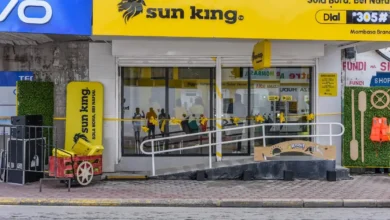
BRICS, an emerging market group that includes Brazil, Russia, India, China and South Africa, will hold its 15th annual gathering, the BRICS 2023 summit later this month.
The expansion of its membership is among the key topics of the upcoming summit, drawing wide attention from all over the world. Meanwhile, an increasing number of countries have expressed eagerness to join it.
According to the government of South Africa, more than 40 countries have expressed interest in joining this bloc of developing nations. So far, over 20 countries have formally applied to become new BRICS members, including Saudi Arabia, Iran, the United Arab Emirates, Argentina, Indonesia, Egypt and Ethiopia.
Experts say that after over a decade of development, BRICS cooperation has greatly strengthened. Meanwhile, the international community has widely recognized and supported BRICS, and the bloc has become a positive, stable and constructive force in international affairs.
Why so attractive?
As an important platform for cooperation among emerging markets and developing countries, BRICS is committed to upholding multilateralism, reforming the global governance system, and increasing the representation and voice of emerging markets and developing countries. Altogether, the BRICS nations account for over 40 percent of the world population and about 26 percent of the global economy.
“Many countries want to join the BRICS system, as it can help establish an international power system commensurate with their economic size and break the imbalance in the current global governance system,” Wang Youming, director of the department for developing countries studies at the China Institute of International Studies, said in an interview with CGTN.
“Different from the exclusive club, the Group of Seven, or the G7, the BRICS spirit features mutual respect and understanding, equality, solidarity, openness, inclusiveness and consensus, which is also one of the reasons many countries want to join the mechanism,” added the expert, noting that the expansion of the BRICS group has become a consensus.
Spanish website Rebelion said many countries are tired of the United States’ virtual domination of the global economy for decades, forcing dollar transactions. Failure to comply with Washington’s directives will result in sanctions and economic and financial blackmail. In contrast, BRICS prioritizes assisting countries in advancing their investment and trade without imposing any preconditions.
“Above all, BRICS defends multipolarity and multilateralism … By defending multilateralism, BRICS countries are countering the concept of the Cold War and opening up the possibility of a more equitable and just international economic order that benefits the world,” Cuban President Miguel Diaz-Canel said recently.
The primary mission of BRICS countries is to serve as advocates for the interests of developing nations, said Valeriia Gorbacheva, head of the Multilateral Strategic Project Office at the Higher School of Economics of Russia’s National Research University.
The goals and values of BRICS countries are consistent with those of most countries in the world, which means that the expansion of BRICS is only a matter of time, said Gorbacheva.
When to expand?
During the 14th BRICS summit in June last year, the leaders of the five countries agreed to expand the bloc’s membership.
South Africa holds the BRICS rotating presidency in 2023 and will host the 15th summit. Kremlin spokesman Dmitry Peskov said in an interview with Russian media that the topic of BRICS membership expansion would be included in the summit’s agenda in August.
“We stand ready to bring more like-minded partners into the big family of BRICS,” said Chinese Foreign Ministry spokesperson Mao Ning, pointing out that BRICS is committed to upholding multilateralism and vigorously advancing global governance reforms.
Peskov said Russia is pleased that more countries have shown strong interest in BRICS. Russian Foreign Minister Sergei Lavrov said that many countries are queueing to join BRICS and the Shanghai Cooperation Organization, which reflects their increasingly important role.
“I consider it extremely important to allow other countries that meet the BRICS requirements to join the group,” said Brazilian President Luiz Inacio Lula da Silva, noting that the BRICS bloc can play an “exceptional role” globally as it can help reduce inequality by offering developing countries financing without onerous terms.
In an interview with the TASS news agency, Nozipho Mxakato-Diseko, South Africa’s permanent representative to the United Nations in Geneva, said BRICS is happy to accept new members who express interest in joining.
The 15th BRICS summit is scheduled to be held in Johannesburg, South Africa, from August 22 to 24.






I really like reading through a post that can make men and women think. Also, thank you for allowing me to comment!
Great information shared.. really enjoyed reading this post thank you author for sharing this post .. appreciated
I just like the helpful information you provide in your articles
naturally like your web site however you need to take a look at the spelling on several of your posts. A number of them are rife with spelling problems and I find it very bothersome to tell the truth on the other hand I will surely come again again.
Hi! This post could not be written any better!
Reading this post reminds me of my good old room mate! He always
kept chatting about this. I will forward ths page to him. Pretty sure he will have a good read.
Thanks for sharing! https://u7bm8.mssg.me